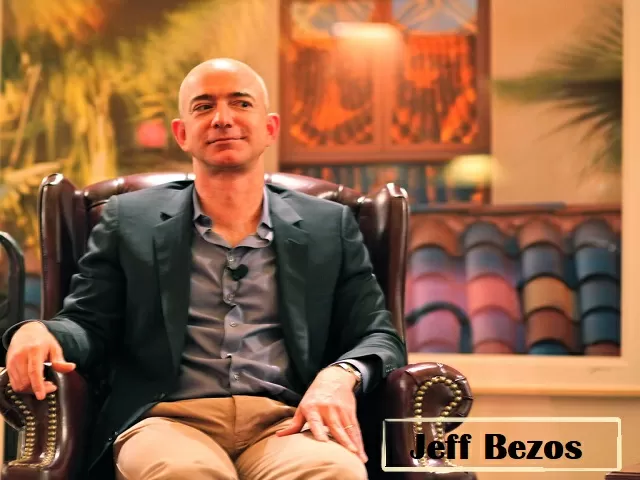Introduction
Amazon, founded by Jeff Bezos in July 1994, emerged as a trailblazer in the e-commerce and technology industries. This exploration navigates through Amazon’s foundational vision, key milestones, innovative contributions, controversies, details about its founder, Jeff Bezos, and the company’s financial prowess.
Founding Vision and Early Days: Jeff Bezos envisioned creating an online marketplace that offered an extensive selection of products and a convenient shopping experience. Launched as an online bookstore, Amazon quickly diversified to include a vast array of products. The company’s relentless focus on customer satisfaction became the cornerstone of its success.
Key Milestones and Expanding Ecosystem: Amazon’s journey is marked by transformative milestones, from going public in 1997 to the introduction of Amazon Prime in 2005. The acquisition of companies like Zappos, Whole Foods, and the establishment of Amazon Web Services (AWS) showcased the company’s commitment to expansion and diversification.
Innovative Contributions and Technological Dominance: Amazon’s influence extends beyond e-commerce with groundbreaking contributions to technology. AWS revolutionized cloud computing, while devices like the Kindle and Echo brought innovation to digital reading and smart home technology. The company’s emphasis on innovation has positioned it as a leader in various technological domains.
Controversies and Market Dominance: Amazon’s dominance in the e-commerce market has been accompanied by controversies. Debates over its market practices, treatment of workers, and concerns about antitrust issues have sparked discussions about the company’s impact on traditional retail and the broader economy.
Jeff Bezos: Founder and Visionary Leader: Jeff Bezos, born on January 12, 1964, in Albuquerque, New Mexico, founded Amazon and served as its CEO until stepping down in 2021. Bezos is known for his visionary leadership, driving Amazon’s growth into a global powerhouse. His ventures beyond Amazon include ownership of The Washington Post and Blue Origin, an aerospace manufacturer.
Financial Prowess and Net Income: As of the latest available data, Amazon’s financial performance has been robust. The company’s net income has consistently grown, driven by its e-commerce dominance, cloud services through AWS, and expansion into diverse sectors. Amazon’s ability to adapt to market dynamics has contributed to its sustained financial success.
Impact on Retail and Cloud Computing: Amazon’s impact on the retail landscape is transformative, having reshaped how consumers shop globally. Additionally, AWS has become a dominant force in cloud computing, providing services to a vast range of businesses. Amazon’s influence on these sectors has set industry standards and redefined customer expectations.
Conclusion: In conclusion, Amazon’s journey from an online bookstore to a global e-commerce and technology giant showcases the transformative power of innovation and adaptability. Jeff Bezos’ visionary leadership, coupled with strategic decisions and a commitment to customer satisfaction, has propelled Amazon into a position of unparalleled influence. As the company continues to evolve and diversify, its impact on how we shop, consume technology, and engage with digital services remains profound.
FAQs
- What was the founding vision of Amazon, and how did it evolve over time? Amazon was founded by Jeff Bezos in July 1994 with the vision of creating an extensive online marketplace. Initially launched as an online bookstore, the company quickly diversified to offer a vast array of products. Over time, Amazon’s vision evolved to prioritize customer satisfaction, becoming a cornerstone of its success. The introduction of Amazon Prime, acquisitions like Zappos and Whole Foods, and the establishment of Amazon Web Services (AWS) showcased the company’s commitment to expansion and diversification.
- How has Amazon contributed to technological innovation beyond e-commerce? Amazon’s influence extends beyond e-commerce with significant contributions to technology. The introduction of Amazon Web Services (AWS) revolutionized cloud computing, providing services to businesses globally. Additionally, devices like the Kindle and Echo showcased innovation in digital reading and smart home technology. Amazon’s emphasis on technological innovation has positioned it as a leader in various domains.
- What controversies has Amazon faced in its journey, and how have these shaped discussions about the company? Amazon’s dominance in the e-commerce market has been accompanied by controversies. Debates over market practices, worker treatment, and concerns about antitrust issues have sparked discussions about the company’s impact on traditional retail and the broader economy. The controversies have raised questions about Amazon’s market dominance and its ethical responsibilities.
- How did Jeff Bezos contribute to Amazon’s growth and what ventures has he pursued beyond Amazon? Jeff Bezos, the founder of Amazon, played a pivotal role in driving the company’s growth into a global powerhouse. His visionary leadership and strategic decisions propelled Amazon’s success. Beyond Amazon, Bezos has pursued ventures like ownership of The Washington Post and Blue Origin, an aerospace manufacturer, showcasing his diverse interests and entrepreneurial spirit.
- What is the financial standing of Amazon, and how has the company adapted to market dynamics? As of the latest available data, Amazon’s financial performance has been robust. The company’s net income has consistently grown, driven by its e-commerce dominance, AWS services, and expansion into diverse sectors. Amazon’s ability to adapt to market dynamics, diversify its offerings, and set industry standards in retail and cloud computing has contributed to its sustained financial success.

